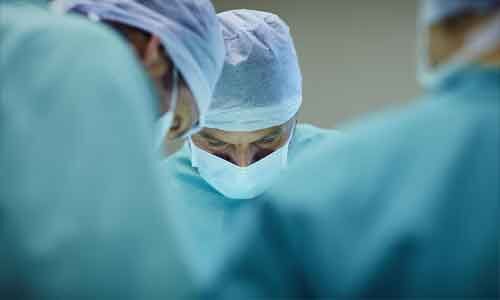- Home
- Medical news & Guidelines
- Anesthesiology
- Cardiology and CTVS
- Critical Care
- Dentistry
- Dermatology
- Diabetes and Endocrinology
- ENT
- Gastroenterology
- Medicine
- Nephrology
- Neurology
- Obstretics-Gynaecology
- Oncology
- Ophthalmology
- Orthopaedics
- Pediatrics-Neonatology
- Psychiatry
- Pulmonology
- Radiology
- Surgery
- Urology
- Laboratory Medicine
- Diet
- Nursing
- Paramedical
- Physiotherapy
- Health news
- Fact Check
- Bone Health Fact Check
- Brain Health Fact Check
- Cancer Related Fact Check
- Child Care Fact Check
- Dental and oral health fact check
- Diabetes and metabolic health fact check
- Diet and Nutrition Fact Check
- Eye and ENT Care Fact Check
- Fitness fact check
- Gut health fact check
- Heart health fact check
- Kidney health fact check
- Medical education fact check
- Men's health fact check
- Respiratory fact check
- Skin and hair care fact check
- Vaccine and Immunization fact check
- Women's health fact check
- AYUSH
- State News
- Andaman and Nicobar Islands
- Andhra Pradesh
- Arunachal Pradesh
- Assam
- Bihar
- Chandigarh
- Chattisgarh
- Dadra and Nagar Haveli
- Daman and Diu
- Delhi
- Goa
- Gujarat
- Haryana
- Himachal Pradesh
- Jammu & Kashmir
- Jharkhand
- Karnataka
- Kerala
- Ladakh
- Lakshadweep
- Madhya Pradesh
- Maharashtra
- Manipur
- Meghalaya
- Mizoram
- Nagaland
- Odisha
- Puducherry
- Punjab
- Rajasthan
- Sikkim
- Tamil Nadu
- Telangana
- Tripura
- Uttar Pradesh
- Uttrakhand
- West Bengal
- Medical Education
- Industry
Perioperative acid-base disturbances increase CDI risk after cardiac surgery: Study

Poland: The presence of hyperlactatemia and decreased lactate clearance during cardiac surgery may predict the occurrence of Clostridium difficile infection (CDI) post-surgery, finds a recent study in the journal PlosONE.
Whether acid-base balance disturbances during the perioperative period may have an impact on CDI is not clear. CDI is the third most common major infection that occurs after cardiac surgery. Dariusz Plicner, Andrzej Frycz Modrzewski Krakow University, Krakow, Poland, and colleagues hypothesized that perioperative acid-base abnormalities including lactate disturbances may predict the probability of incidence of CDI in patients after cardiac procedures.
For the purpose, the researchers analyzed 12,235 patients after cardiac surgery, of which 143 (1.2%) developed CDI. The control group included 200 consecutive patients without diarrhea, who underwent cardiac procedure within the same period of observation.
The researchers determined pre-, intra and post-operative levels of blood gases, as well as lactate and glucose concentrations. Postoperatively, arterial blood was drawn four times: immediately after surgery and successively; 4, 8 and 12 h following the procedure.
Key findings of the study include:
- Baseline pH was lower and PaO2 was higher in CDI patients. Additionally, these patients had greater base deficiency at each of the analyzed time points.
- · Severe hyperlactatemia was also more common in CDI patients; during the cardiac procedure, 4 h and 12 h after surgery.
- · Multivariate logistic regression analysis revealed that independent risk factors for CDI following cardiac surgery were as follows: intraoperative severe hyperlactatemia (OR 2.387), decreased lactate clearance between values immediately and 12 h after procedure (OR 0.996), increased age (OR 1.045), emergent surgery (OR 2.755) and use of antibiotics other than periprocedural prophylaxis (OR 2.778).
"This study is the first to show that perioperative hyperlactatemia and decreased lactate clearance may be predictors for occurrence of CDI after cardiac surgery," wrote the authors.
Reference:
The study titled, "Prognostic role of perioperative acid-base disturbances on the risk of Clostridioides difficile infection in patients undergoing cardiac surgery," is published in the journal PlosOne.
DOI: https://journals.plos.org/plosone/article?id=10.1371/journal.pone.02485
Dr Kamal Kant Kohli-MBBS, DTCD- a chest specialist with more than 30 years of practice and a flair for writing clinical articles, Dr Kamal Kant Kohli joined Medical Dialogues as a Chief Editor of Medical News. Besides writing articles, as an editor, he proofreads and verifies all the medical content published on Medical Dialogues including those coming from journals, studies,medical conferences,guidelines etc. Email: drkohli@medicaldialogues.in. Contact no. 011-43720751


